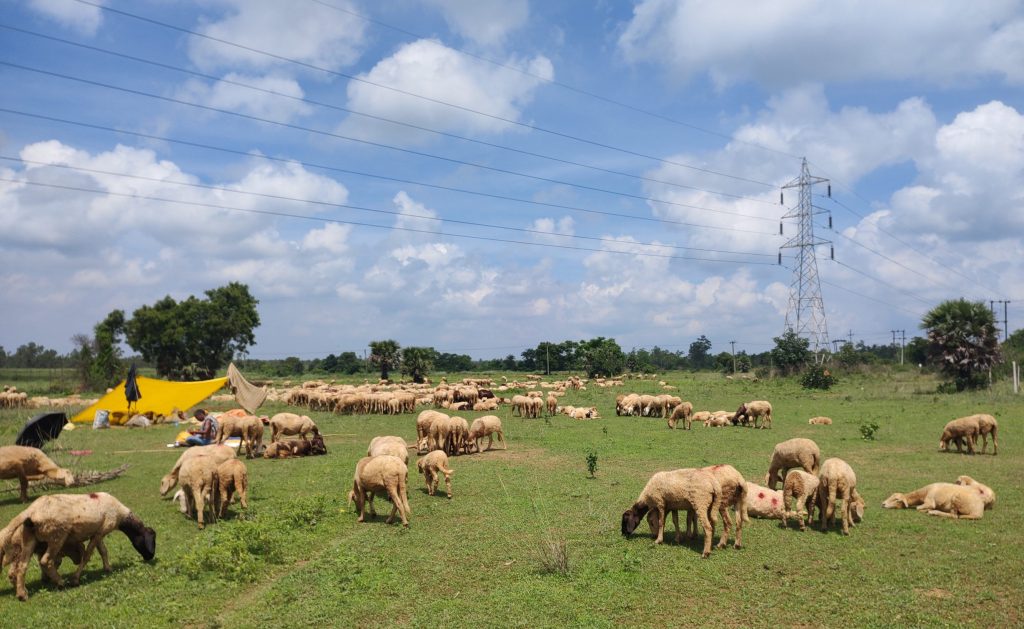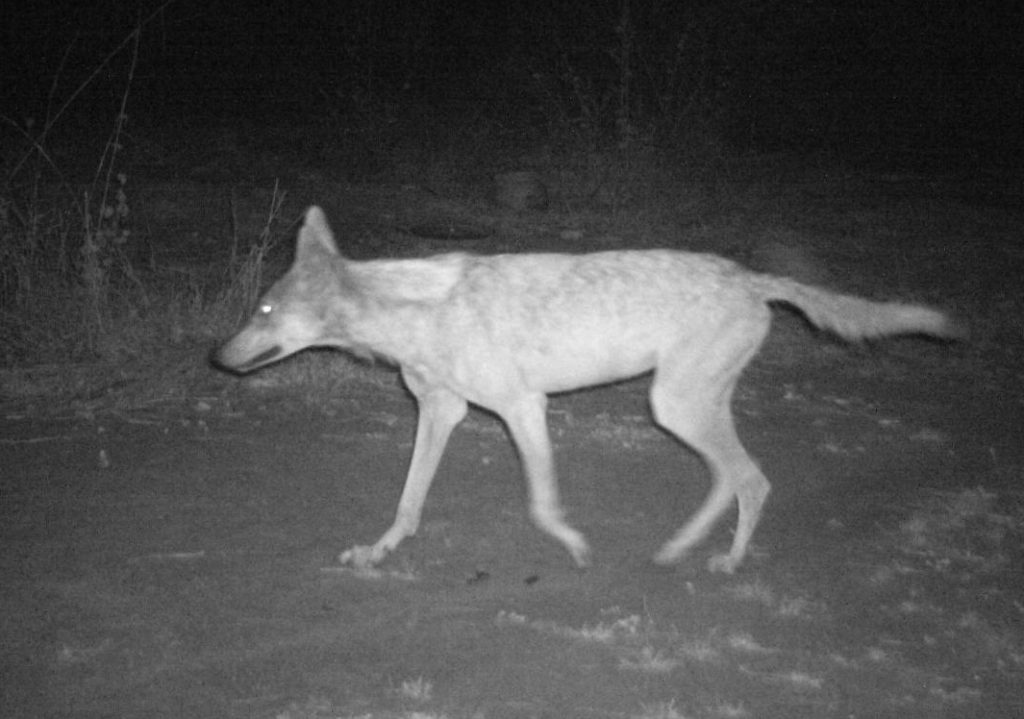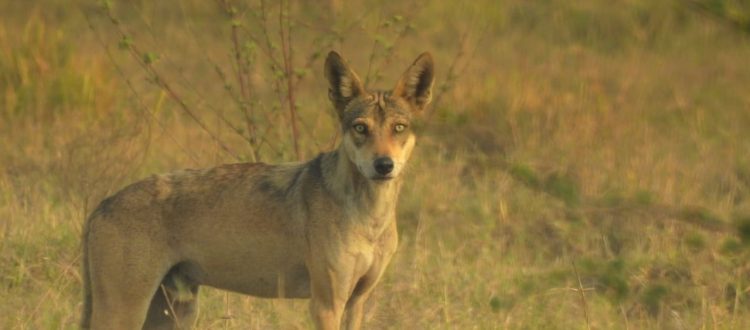27
Jul
Addressing human-Indian grey wolf conflicts in Madhaiganj, Durgapur
0 Comment
The Indian Grey Wolf (Canis lupus pallipes) is one of the lesser studied canids in West Bengal. Their preference for open arid grasslands are often subjected to urbanization thinking grasslands are waste patches as a result their sub-populations have become scattered. this is more common to grassland habitats in the outskirts of cities in several states like Maharashtra, Madhya Pradesh and West Bengal.
The northern part of Durgapur subdivision has observed these wolf packs with sheep lifting from sheds. Mr. Arkajyoti Mukherjee, a conservationist from a local NGO called WINGS, reached out to Wildlife Trust of India (WTI) seeking support for human-wolf conflict mitigation measures. The community in Madhaiganj broadly depend on agriculture and every household has 5-10 goat/sheep for dairy produce. Conducting a preliminary survey of 50 random households, he identified Madhaiganj village with a high number of conflicts with wolves. Each family in the village has lost more than two goats/sheep on average last year. Survey also showed 50% of the livestock were lifted from people houses gravely impacting on their livelihood. Although a majority of the victims (95%) reported the loss to the Forest Department, none of them have so far received any compensation. The locals also claimed to encounter the wolves around 3-4 times per week while they take their livestock for grazing.

Nomadic sheep herding in Madhaiganj | Photograph by Sukanya David/WTI
As per local villagers, their sightings have reduced a lot compared to the previous decade. Mostly preferring forest fringes, the wolf often causes livestock losses leading to conflict and retaliation, further putting their population at risk. “With India’s feral dog population on the rise, we are also seeing hybridization of the species and spread of diseases such as rabies, mange in canids such as Indian wolves, golden jackals (Canis aureus) etc”, says Mr. Mukherjee.
Mr Mukherjee began by interacting with the Forest Department and surveying local residents to gather baseline data on the wolf population and people’s perception about the animal. Camera trap surveys are being undertaken to understand wolf movement patterns. Non-lethal deterrents in particular fladry (perimeter of closely placed flags) is being installed around livestock enclosures to reduce attacks by wolves. Studies in the USA have shown fladry helps in creating a virtual barrier that wolves do not like to cross thereby impairing their predation ability. The concept is practiced in different forms in the Himalayan belt and a cost effective way of doing this is by tying colourful sarees across fences. However, this specific method shall be monitored by the team in selected fringe households and the community shall be provided guidance on measures to be taken for maintenance for better effectiveness. Further sensitization of local villagers and students is being be carried out. The project’s effectiveness is being measured through pre- and post-surveys gathering data on level of conflict.

Indian Grey Wolf caught on Camera Trap | Photograph by Arkajyoti Mukherjee
The team has observed around 6 adults and 2 sub-adults through camera trapping and indirect sign surveys. They have spoken to the community and will begin testing out fladry from the coming month. A mass awareness workshop is also being organised on 18th August with the Gram Panchayat, PCCF WL, DFO Durgapur and village residents. Through this Rapid Action Project (RAP), WTI hopes to reduce the instances of human-wolf conflict and protect the resident population of the species in Madhaiganj.
Rapid Action Projects provide urgent critical support to local individuals and organizations to nip wildlife emergencies in the bud. A series of effective outcomes through a consistent approach contribute to a larger conservation impact. If you know of a deserving individual or organization that needs support to effect conservation action on ground, get in touch with us through rap@wti.org.in









